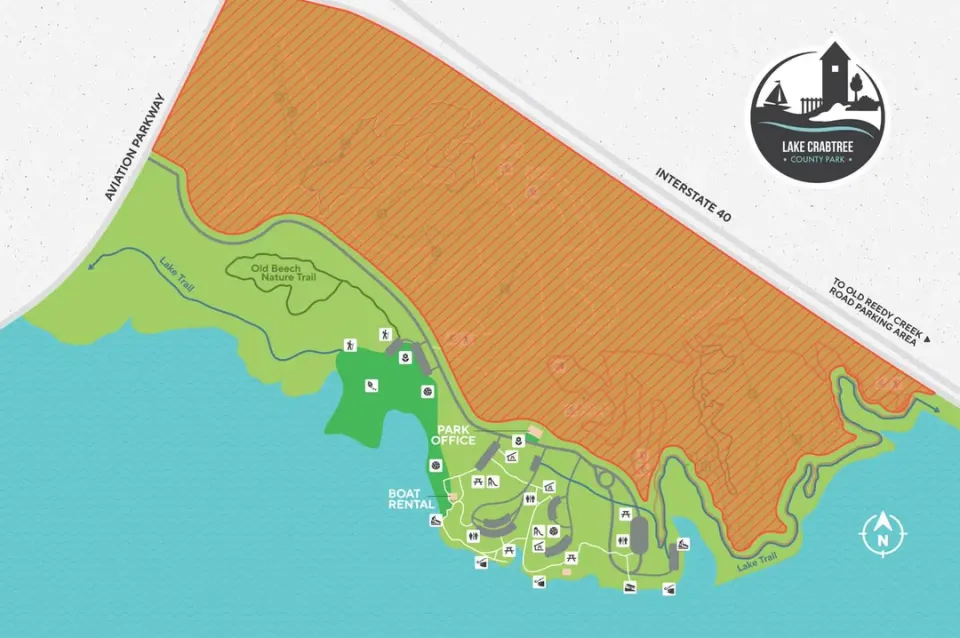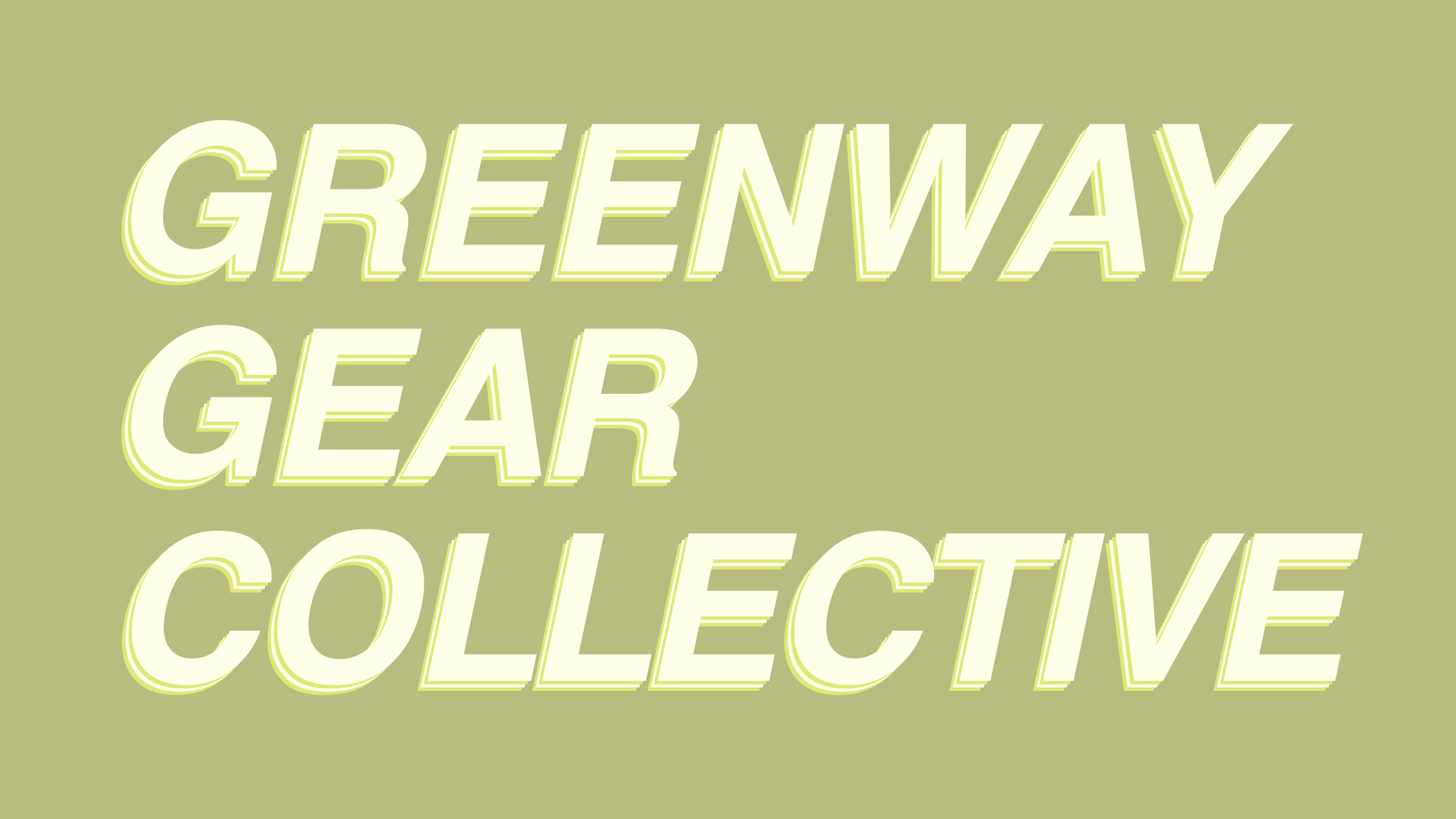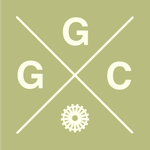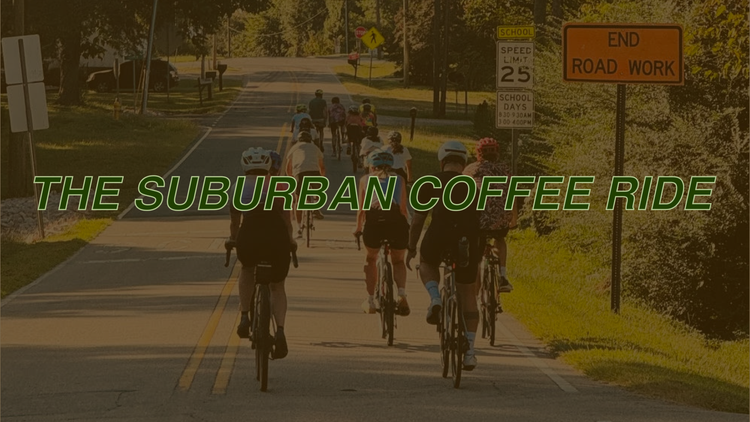Opinion: We Closed Lake Crabtree. Not "They."

Events this week:
- Bike Maintenance Class: Sunday 5/11 10am-12pm. Sign up here.
- Favorite Tree Ride: Sunday 5/11 12pm-2pm. Meet at Lake Raleigh!
Check out the Calendar tab for more events and info!
On June 1, Lake Crabtree County Park (LCCP) will close most of its trails and begin a major redevelopment. If you want more background, WRAL and Reddit have plenty.
It’s a tragedy. A lot of people are upset. I’m one of them. I keep wondering how we got here—how we, as a society, became so willing to cut down and pave over land like this.
This isn’t a post about what the park means to me. You've heard those stories—at the public comment session at RDU headquarters a few months ago, probably 80% of speakers shared heartfelt memories instead of responding to the board’s actual prompt: What kinds of development should we consider? Those stories were beautiful. They were also ignored.
What I want to do here is strip away the emotion and nostalgia, and make a difficult point: even the most well-meaning cyclist, the most Thoreau-esque nature lover, every Subaru-driving tree-hugger—you, me, all of us—we chose this. We did it. Not "they." There is no "they." Only "we."
What Will Happen to LCCP
There are two likely futures.
The optimistic one: a "trail utopia." Think Topgolf, but for hikers and bikers. A landscape architect’s fever dream, overly curated and vaguely crunchy. Designed to feel natural, but only in the way an REI store does.
The cynical one: parking lots, retail, a sports bar, maybe a Lululemon outlet. Something like Fenton or the future Lenovo/PNC Entertainment District. (Don’t get me started on Fenton.)
Either way, the new development will need to generate revenue. Whoever buys the land will pay market price—and expect a return. That means tickets. That means customers. That means... cars.
Without Cars, There Is No Cash
Let’s be honest: most of our experiences at LCCP began and ended in a car. I’ve driven there. You probably have too. Your kids’ mountain biking adventures, those tranquil hikes, the photos you shared at that RDU meeting—they were all sandwiched between two car rides.
I know this firsthand. At The Bike Library on Lake Raleigh, foot traffic is light. Not because it’s hard to get to by bike—it’s easy—but because it’s hard to get to by car. And that matters. At that public comment session a few months ago, I even pitched the idea of a bike shop in a shipping container to the RDU Authority. They liked the concept and asked for my email. But they never followed up because we all knew the truth: no parking, no profit.
The Real Issue Is Parking
Whoever redevelops the park will need visitors. And those visitors will need somewhere to park.
Here’s my request—and my challenge: If you're angry about a new parking lot at Lake Crabtree, be just as angry about surface parking in downtown Raleigh. Be just as angry about curbside car storage on public streets.
Storing private vehicles in public space is part of the same problem. We’ve demanded individualized, convenient, car-based transportation—and it's systematically destroying our shared natural spaces. If we want to preserve places like LCCP, we need better public transit. And we need to actually use it.
We Love Cars Too Much to Change
The truth is, driving is easy. Biking to LCCP is harder. Riding the bus is inconvenient. And people with the means to drive—say, a stay-at-home parent in a Volvo—probably will. Because why wouldn’t they?
So here’s another request: drive less. As little as you possibly can.
Hot outside? Ride anyway. Need to carry things? Get a basket. Check the “Transit” tab on Google Maps before grabbing your keys—there might be a bus coming. You just haven’t looked.
It’s easy to point fingers. But we are they. And they are we. We all built this. We all chose it. And we’re the only ones who can choose something different.





Comments ()